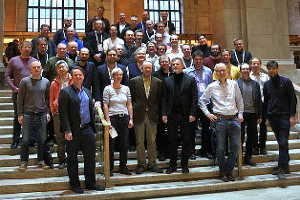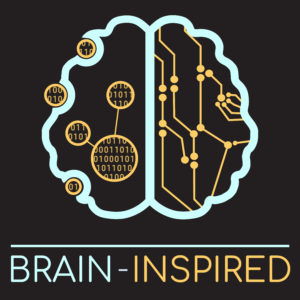Kleine Zeitung Special Edition "Die Kraft der Region"
November 2022: "Machine learning will change the world like the internet and before that computers did", predicts Robert Legenstein.
learn more about this topic
Kleine Zeitung - about this Special Edition
New paper
Jan. 2019: Our new paper discusses possibilities how powerful learning algorithms could be implemented in biological neuronal networks. Bellec, Scherr, et al., Biologically inspired alternatives to backpropagation through time for learning in recurrent neural nets. ArXiv 2019.
Dec. 2018: The IGI cooperates with intel on the design of spiking neural networks for their neuromorphic chip Loihi. Article at top500...
ELLIS Society launched
Dec. 2018: Prof. Robert Legenstein and Prof. Wolfgang Maass at the founding ceremony of the ELLIS society. ELLIS is an initiative of European scientists to establish a European Lab for Learning & Intelligent Systems (ELLIS open letter). more ...

